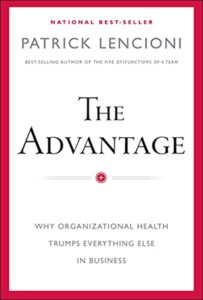|
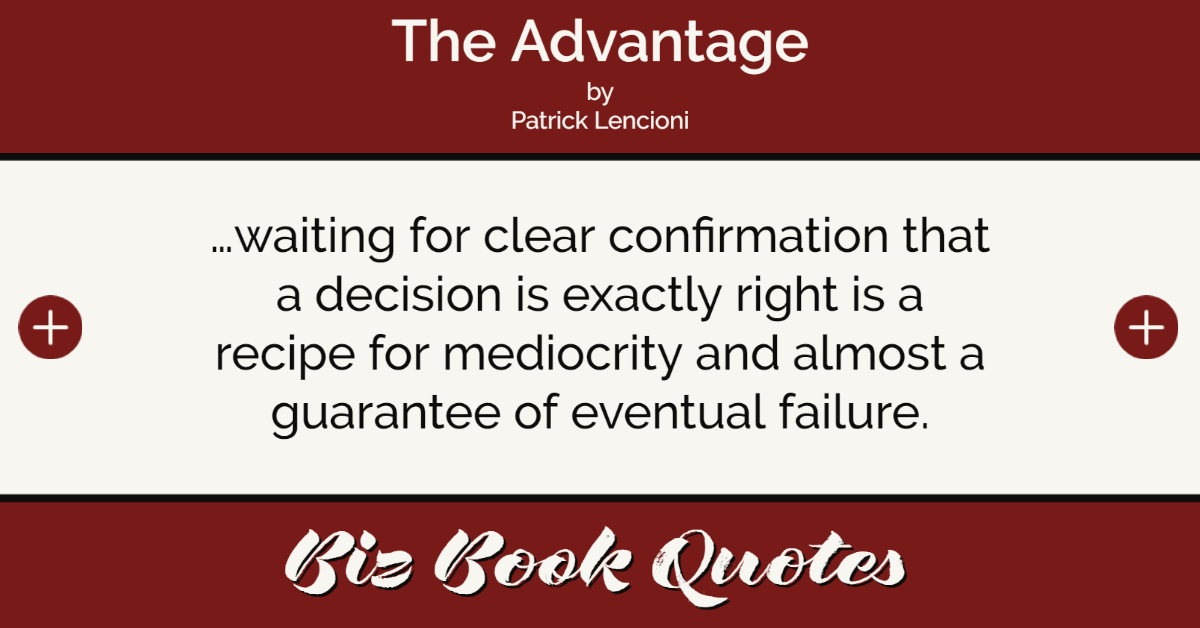
|
The Advantage:
…waiting for clear confirmation that a decision is exactly right is a recipe for mediocrity and almost a guarantee of eventual failure.
|
80 |
|
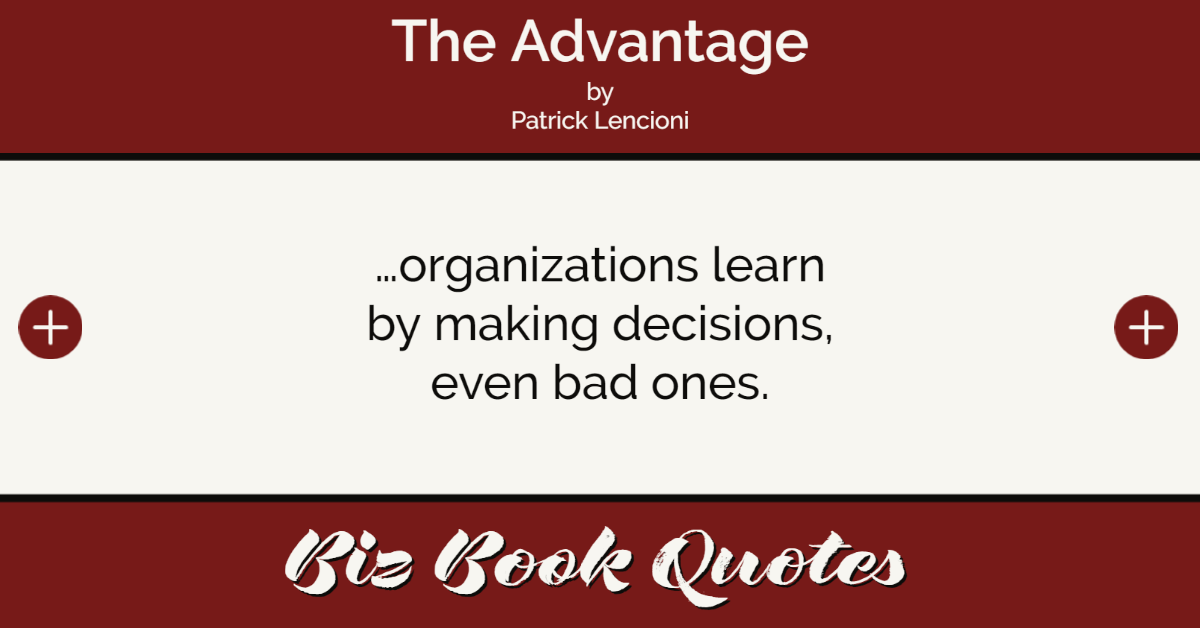
|
The Advantage:
…organizations learn by making decisions, even bad ones.
|
80 |
|
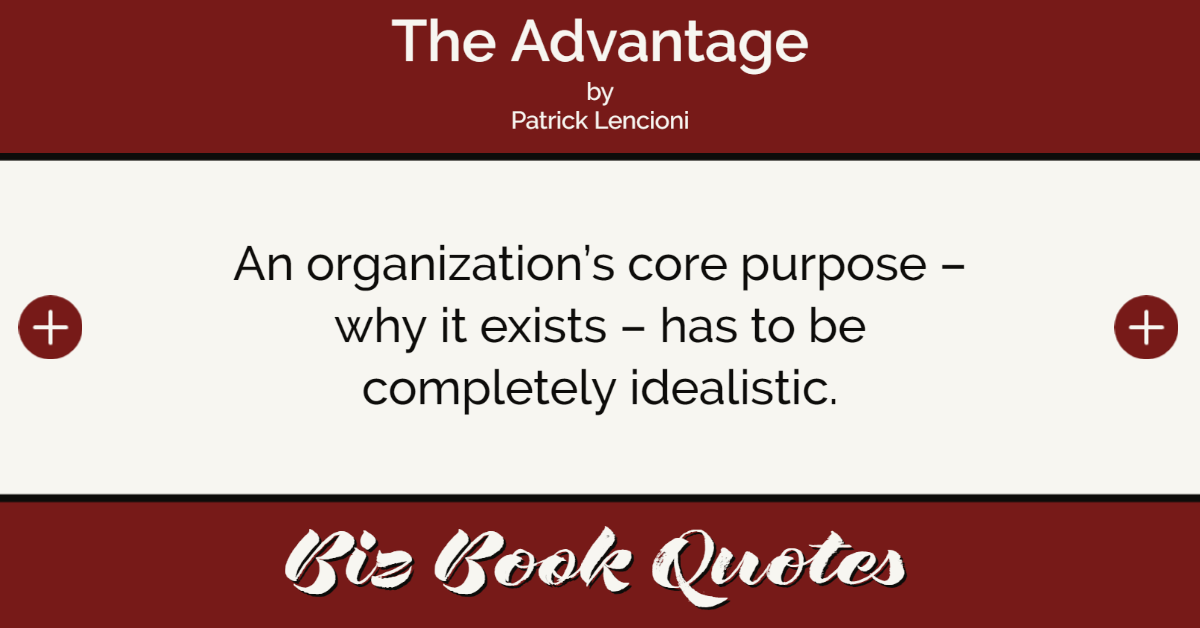
|
The Advantage:
An organization’s core purpose – why it exists – has to be completely idealistic.
|
82 |
|
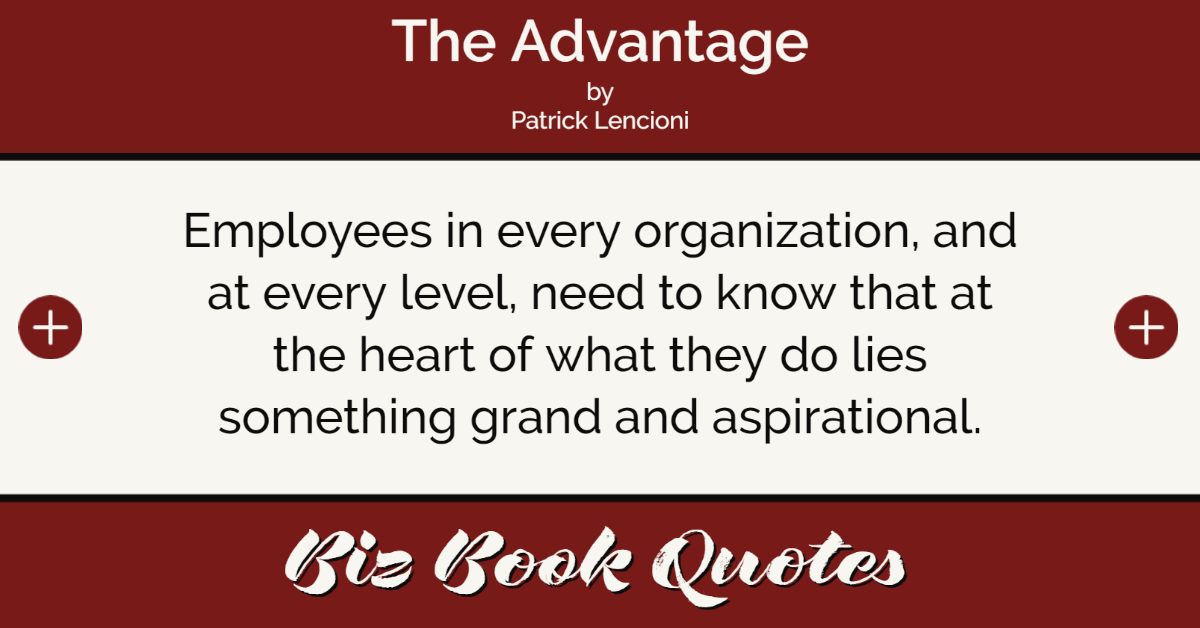
|
The Advantage:
Employees in every organization, and at every level, need to know that at the heart of what they do lies something grand and aspirational.
|
82 |
|
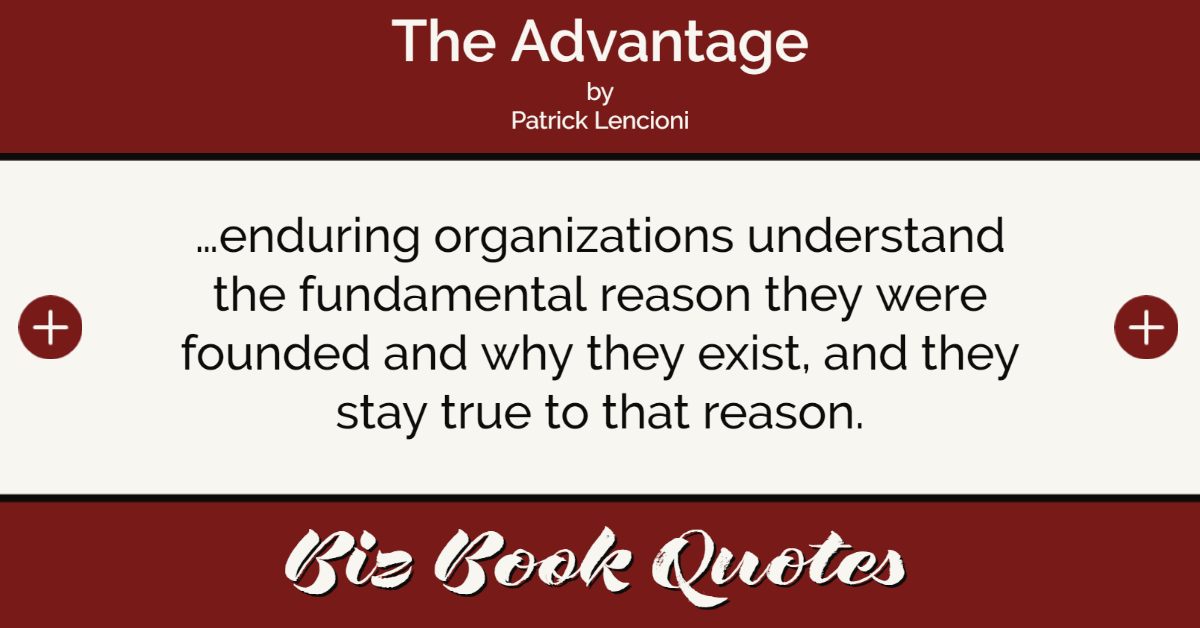
|
The Advantage:
…enduring organizations understand the fundamental reason they were founded and why they exist, and they stay true to that reason.
|
82 |
|
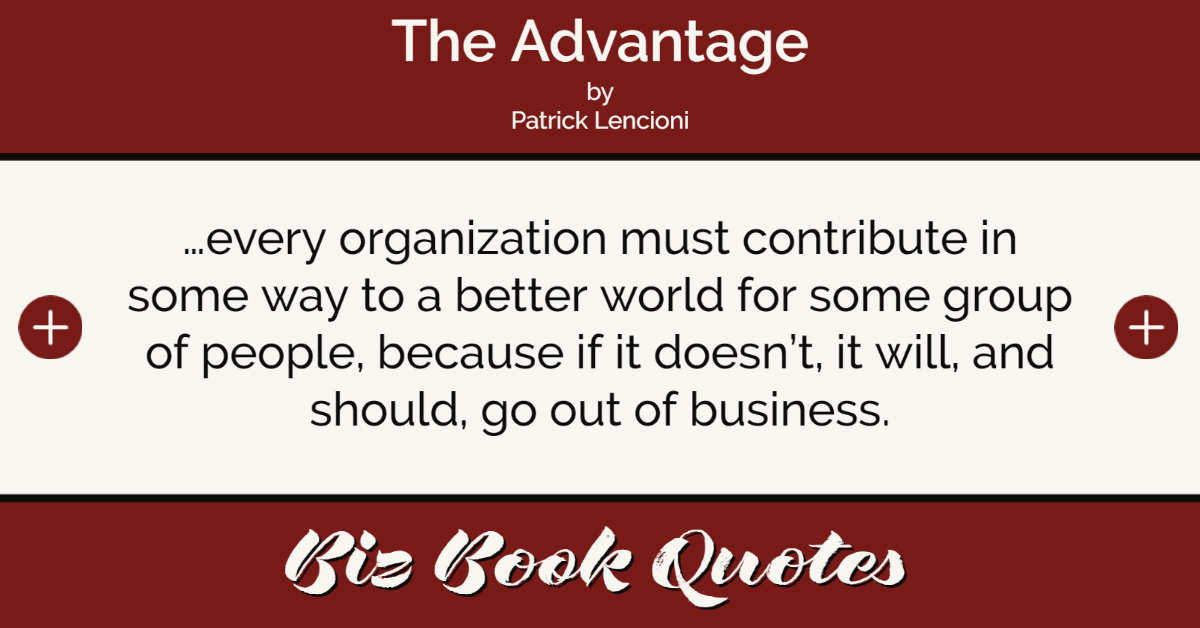
|
The Advantage:
…every organization must contribute in some way to a better world for some group of people, because if it doesn’t, it will, and should, go out of business.
|
83 |
|
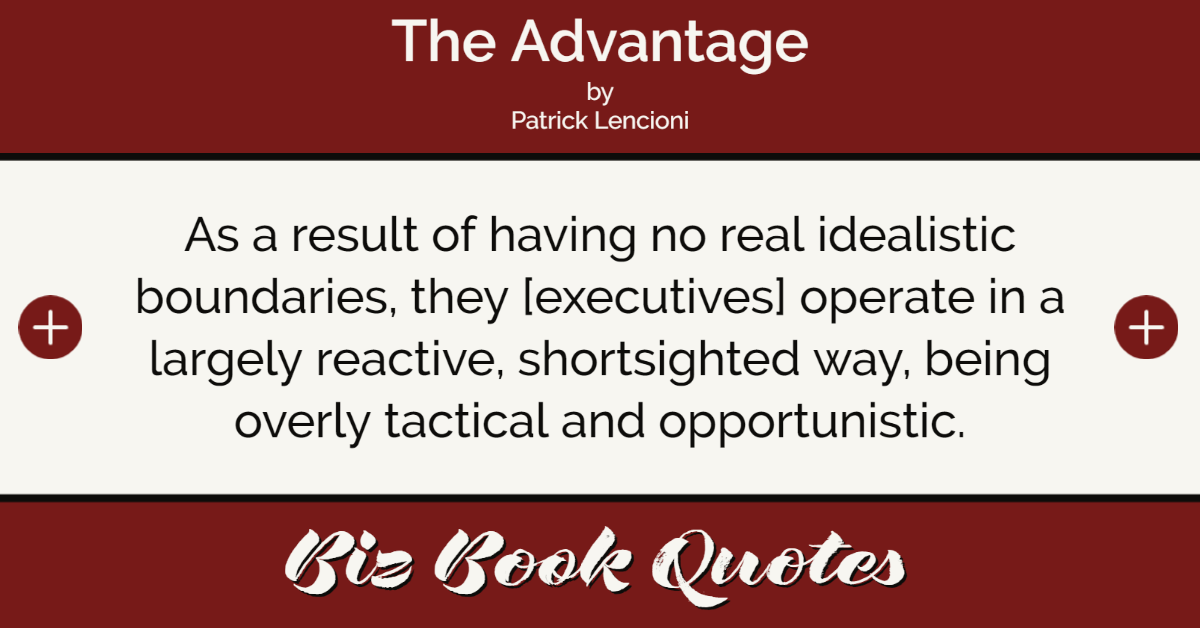
|
The Advantage:
As a result of having no real idealistic boundaries, they [executives] operate in a largely reactive, shortsighted way, being overly tactical and opportunistic.
|
83 |
|
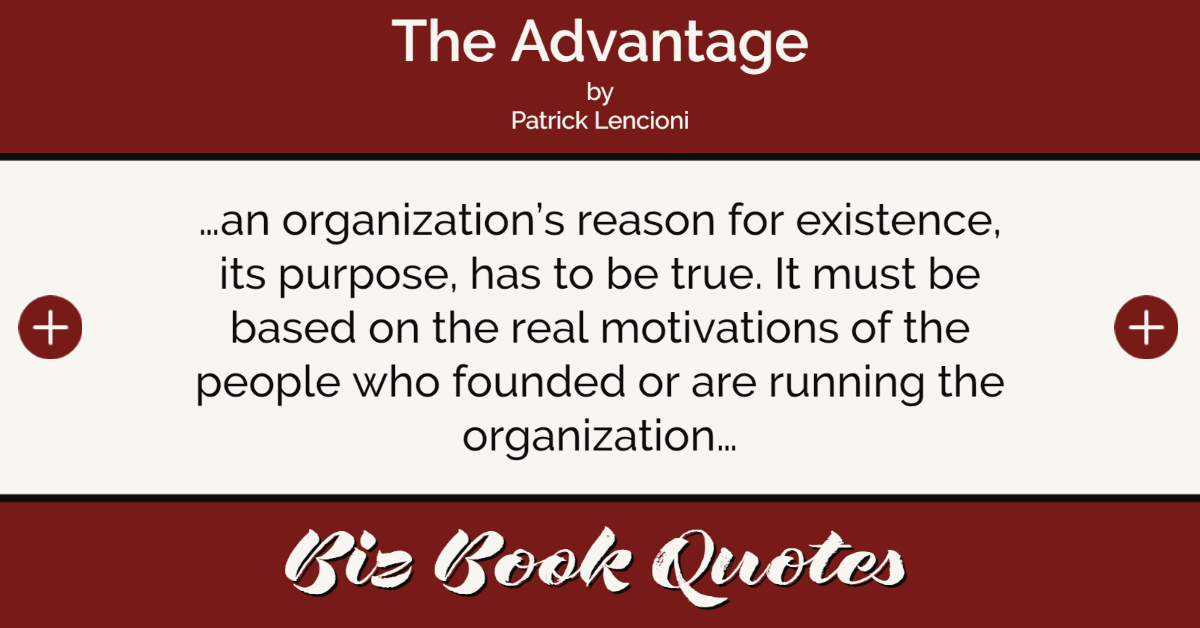
|
The Advantage:
…an organization’s reason for existence, its purpose, has to be true. It must be based on the real motivations of the people who founded or are running the organization…
|
84 |
|

|
The Advantage:
…an organization’s reason for existing is not meant to be a differentiator…
|
90 |
|
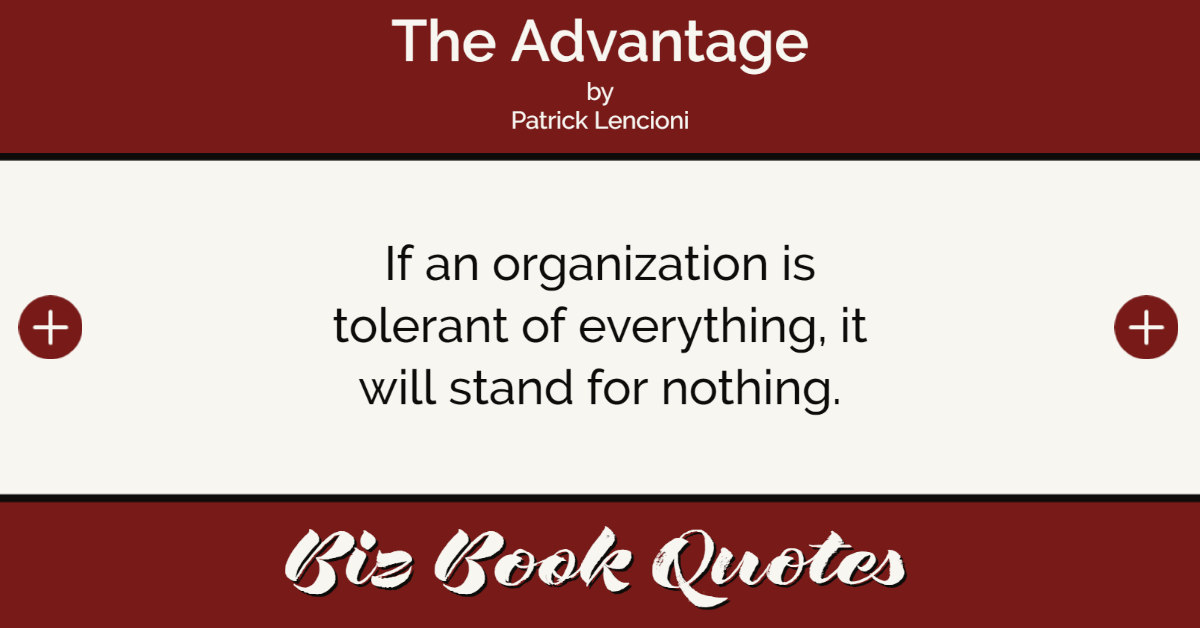
|
The Advantage:
If an organization is tolerant of everything, it will stand for nothing.
|
91 |
